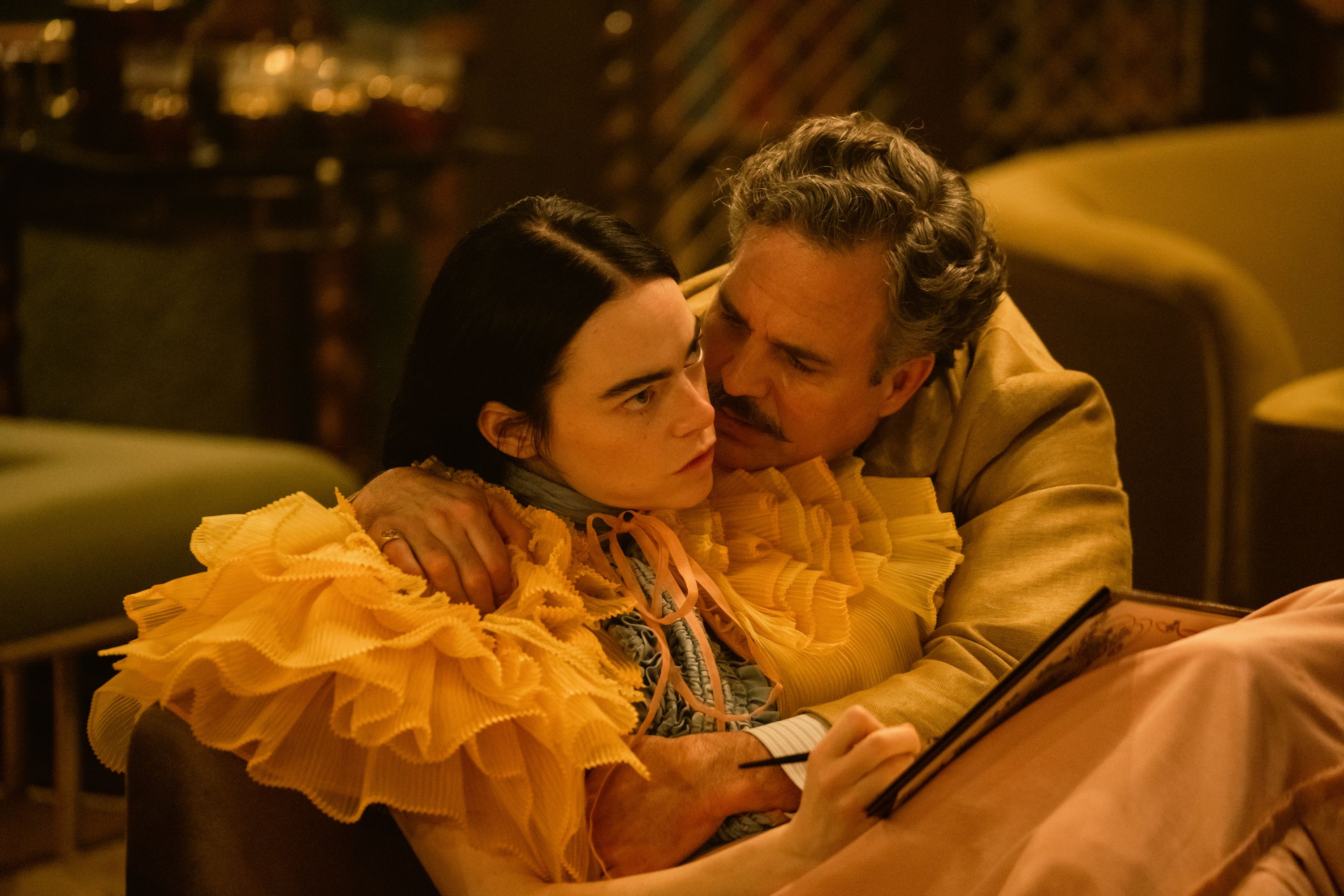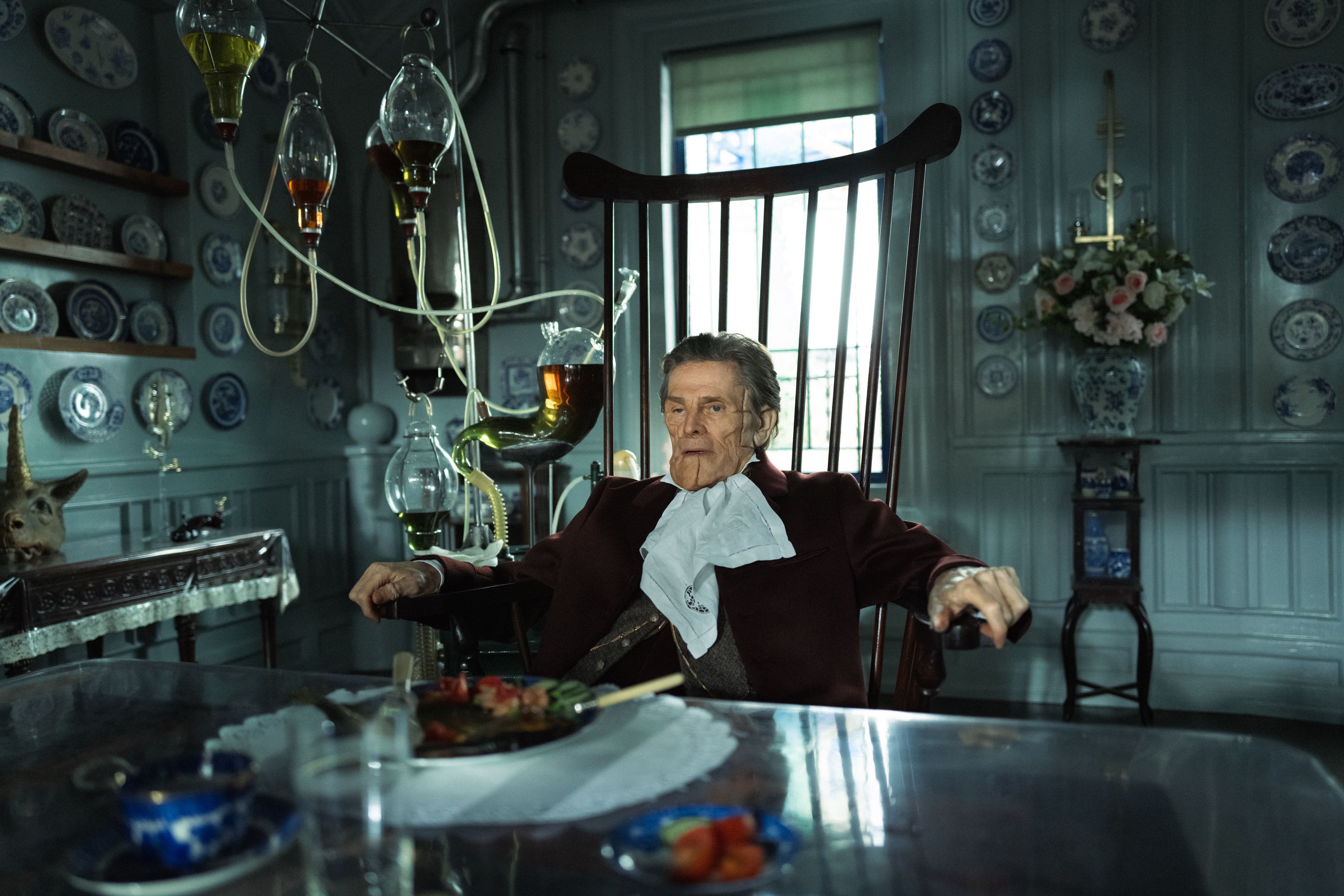At A Glance
- Based on the novel by Irish author Alasdair Gray, the movie showcases director Yorgos Lanthimos's love for the surreal and absurd.

It is still very early in 2024, but I can guarantee you won’t see a more visually intriguing, disturbingly compelling, and peculiarly entertaining piece of cinema for the rest of the year than Poor Things. Based on the novel by Irish author Alasdair Gray, the movie showcases director Yorgos Lanthimos’s love for the surreal and absurd.
In a new twist on the classic Frankenstein stereotype, Emma Stone plays Bella Baxter, a suicide victim brought back to life by Dr. Godwin Baxter, a deformed yet genius surgeon played by Willem Dafoe. Instead of a rampaging monster, Bella is like an infant in an adult’s body, unable to communicate and care for herself properly.
She is also a very empty slate, a true tabula rasa lacking identity. She does, however, improve over time and at such a pace that Dr. Baxter and his assistant Max (Ramy Yousaff) can scarcely believe or keep up with her progress. They can also barely contain her, for as she becomes more and more in control of herself, she also thirsts for more and more knowledge. Like a vacuum, Bella’s mind sucks everything in and is never sated.

In her search for new experiences, she runs off with Duncan Wedderburn, a narcissistic hedonist of a lawyer who thinks himself God’s gift to women, inhabited by a deliciously over-the-top Mark Ruffalo. Together, they see the sights, travel, and find themselves in trouble.
The visuals, with the exaggerated Victorian era touches laced with steampunk architecture, fish-eye lenses and scenes with wildly varying degrees of saturation, are certainly captivating, yet not exactly welcoming. The themes are complex, though a substantial portion of which is explored with nudity and/or various forms of intimate activities.
As unique as a film is, it is definitely only for some. There is much to unpack here; however, as a viewer, you must work to get to it. Once you get past the gratuitous displays of flesh and the vivid but unnerving presentation, you will see that it is a coming-of-age story for Bella as she learns about herself and her place in the world.

You will also see commentary on relationships between men and women through Bella’s interactions with the men in her life, Godwin, Max, and Duncan, and how they view her and how she sees them. Not to mention the copious number of men who, ahem, she does her business with, if you catch my meaning.
As you sit and watch, who the title refers to becomes a bit less clear. Who exactly is the poor thing? Is it poor Bella because of what happened to her? Or is it poor, deformed Godwin, with his mangled face and tragic childhood? Or perhaps it may be poor Duncan who – Well, you will see what he goes through.
The film will also treat audiences to amazing performances, particularly from Emma Stone. The way she transforms throughout the film from a flailing, uncoordinated child to a vibrant and independent young woman is nothing short of outstanding.
Mark Ruffalo took a gamble on the role here as he plays against type. Normally, he’s the soft-spoken guy next door, chill, level-headed, and affable. Here, he is self-absorbed, controlling, debauched, and hamming things up like there is no tomorrow. Playing his role with exaggerated gusto becomes a perfect counterpoint to Stone’s much calmer and collected Bella, and the scenes between the two are some of the best in the film. This also brings about much of the humor. It is safe to say his gamble paid off brilliantly.
If you are into arthouse films, then this is a can’t-miss. It may seem off-putting for mainstream audiences at first, but Poor Things does have much to offer for certain. You can catch it now in theaters.